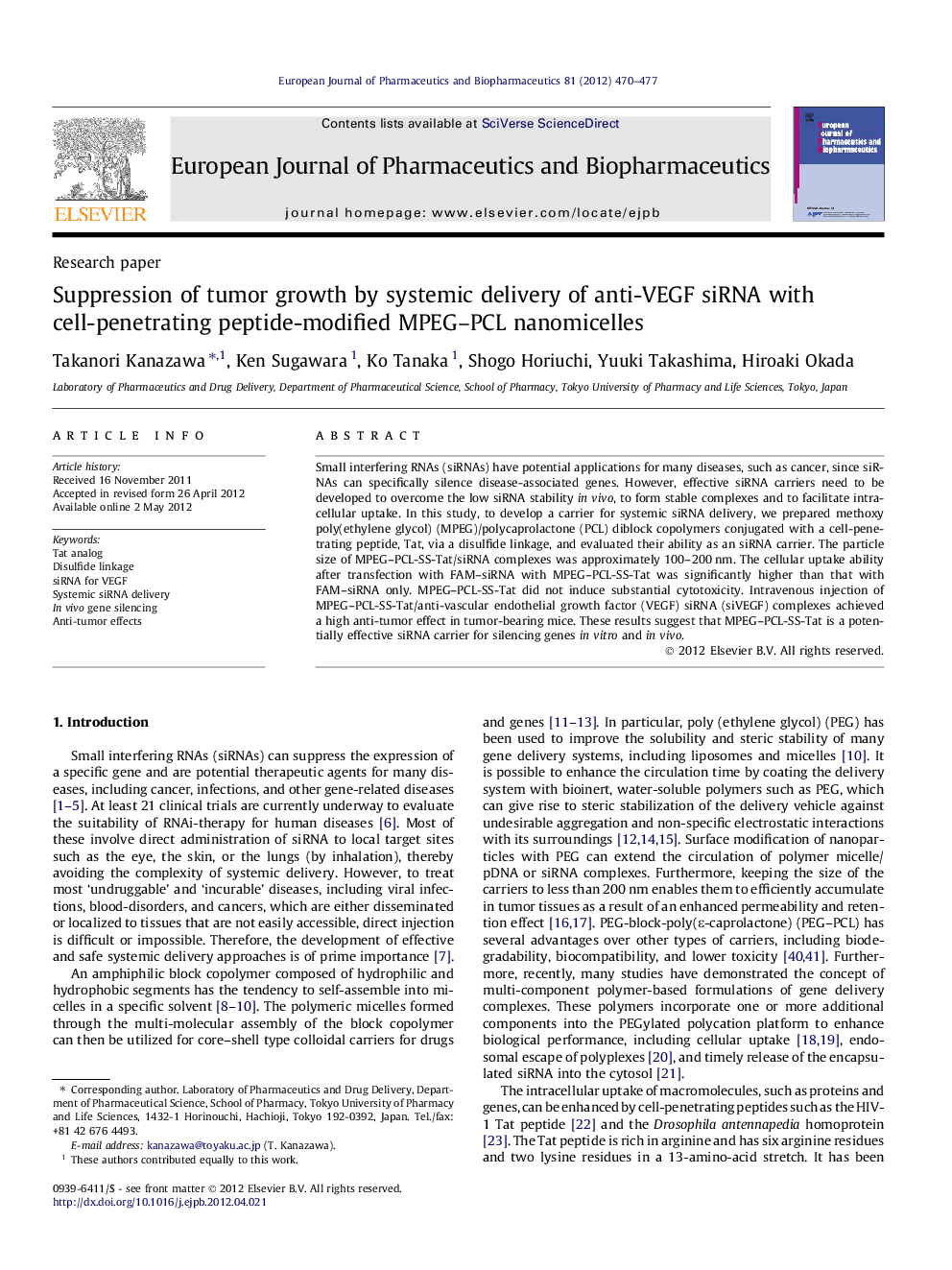| Article ID | Journal | Published Year | Pages | File Type |
|---|---|---|---|---|
| 2083939 | European Journal of Pharmaceutics and Biopharmaceutics | 2012 | 8 Pages |
Small interfering RNAs (siRNAs) have potential applications for many diseases, such as cancer, since siRNAs can specifically silence disease-associated genes. However, effective siRNA carriers need to be developed to overcome the low siRNA stability in vivo, to form stable complexes and to facilitate intracellular uptake. In this study, to develop a carrier for systemic siRNA delivery, we prepared methoxy poly(ethylene glycol) (MPEG)/polycaprolactone (PCL) diblock copolymers conjugated with a cell-penetrating peptide, Tat, via a disulfide linkage, and evaluated their ability as an siRNA carrier. The particle size of MPEG–PCL-SS-Tat/siRNA complexes was approximately 100–200 nm. The cellular uptake ability after transfection with FAM–siRNA with MPEG–PCL-SS-Tat was significantly higher than that with FAM–siRNA only. MPEG–PCL-SS-Tat did not induce substantial cytotoxicity. Intravenous injection of MPEG–PCL-SS-Tat/anti-vascular endothelial growth factor (VEGF) siRNA (siVEGF) complexes achieved a high anti-tumor effect in tumor-bearing mice. These results suggest that MPEG–PCL-SS-Tat is a potentially effective siRNA carrier for silencing genes in vitro and in vivo.
Graphical abstractThe concept of anti-VEGF siRNA (siVEGF) systemic delivery with MPEG-PCL-SS-Tat. Enhance of biological performance, including EPR effect, intracellular uptake, and decondensation and release of siRNA in the cytosol.Figure optionsDownload full-size imageDownload high-quality image (143 K)Download as PowerPoint slide
